
Overview
We're committed to becoming a zero-waste campus.
Becoming a zero-waste campus will require a large shift in the way the campus operates. Students and employees have a critical role to play in these efforts. Waterloo has launched the Shift:Zero campaign to support the transition, with a focus engaging and educating the campus, reducing waste before it is created, capturing waste through organics and recycling streams, and expanding opportunities for reuse. Learn more about these programs below:
Supporting SDGs


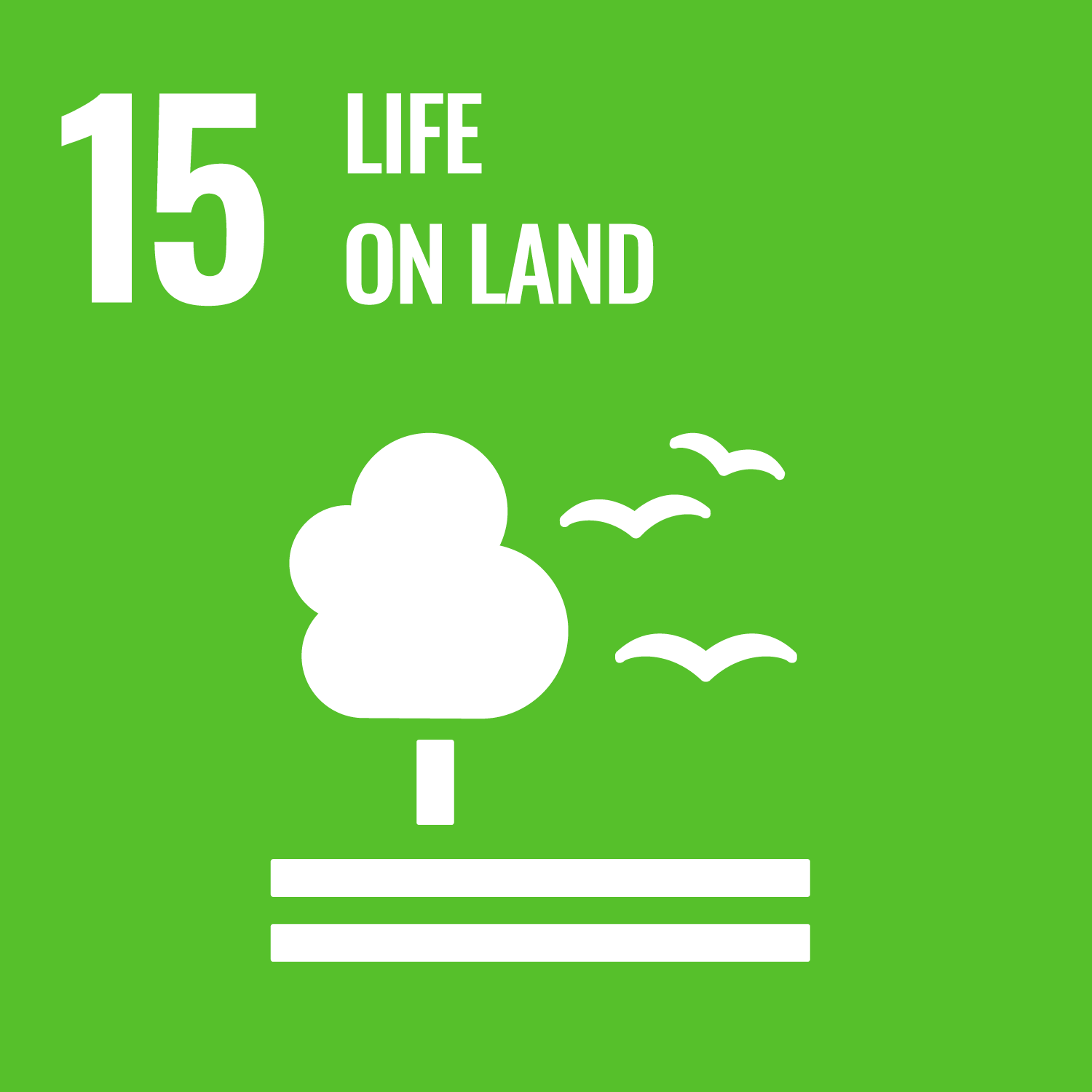
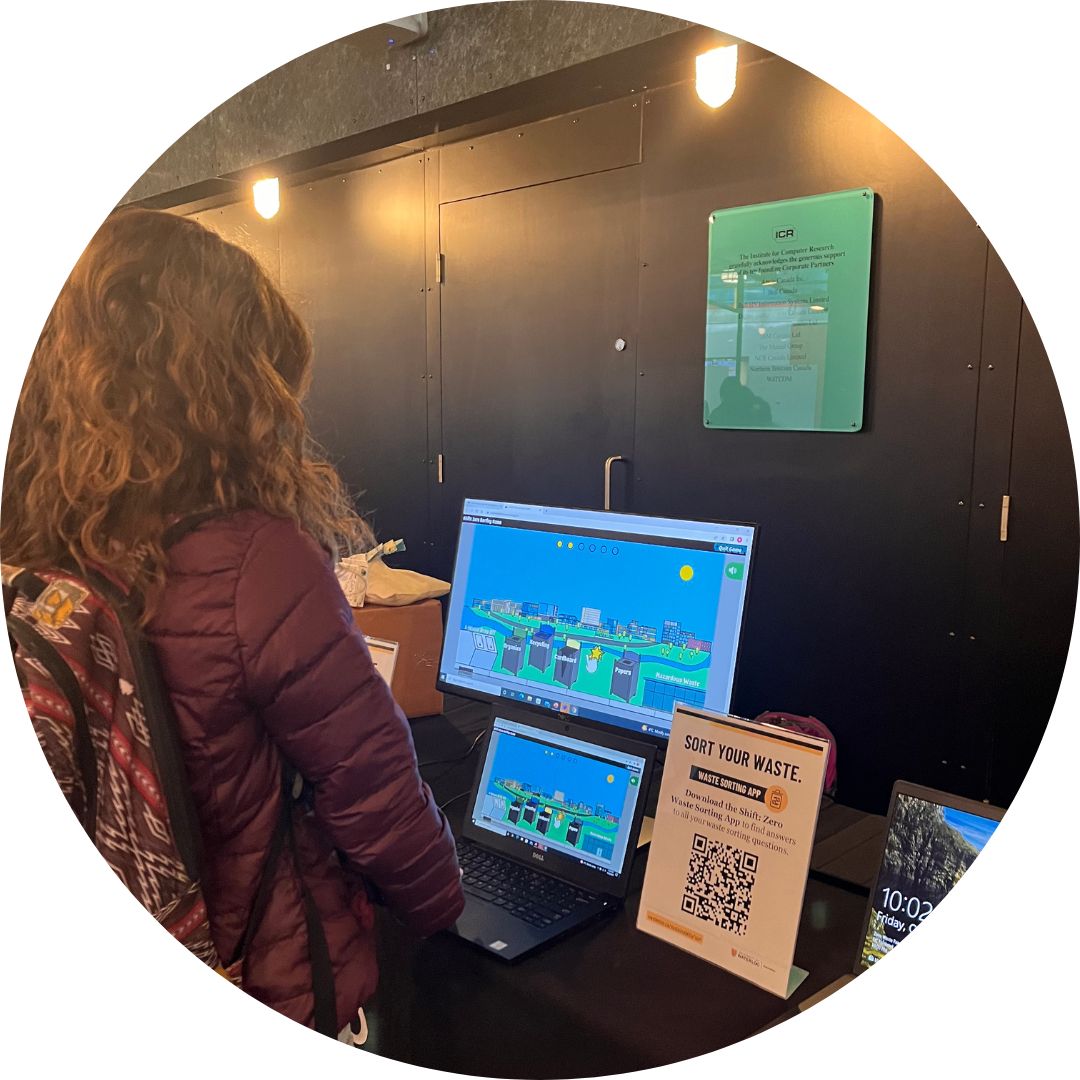
Engagement + training
Waterloo is expanding educational messaging to build knowledge of waste reduction opportunities and reinforce a culture that understands its importance. Some campus initiatives include:
- Sustainability Certificate: The workshop series includes section on responsible consumption and reducing material footprints.
- Zero Waste Month: An annual event with pop-up booths, sorting challenges, and other interactive activities to build awareness and encourage action.
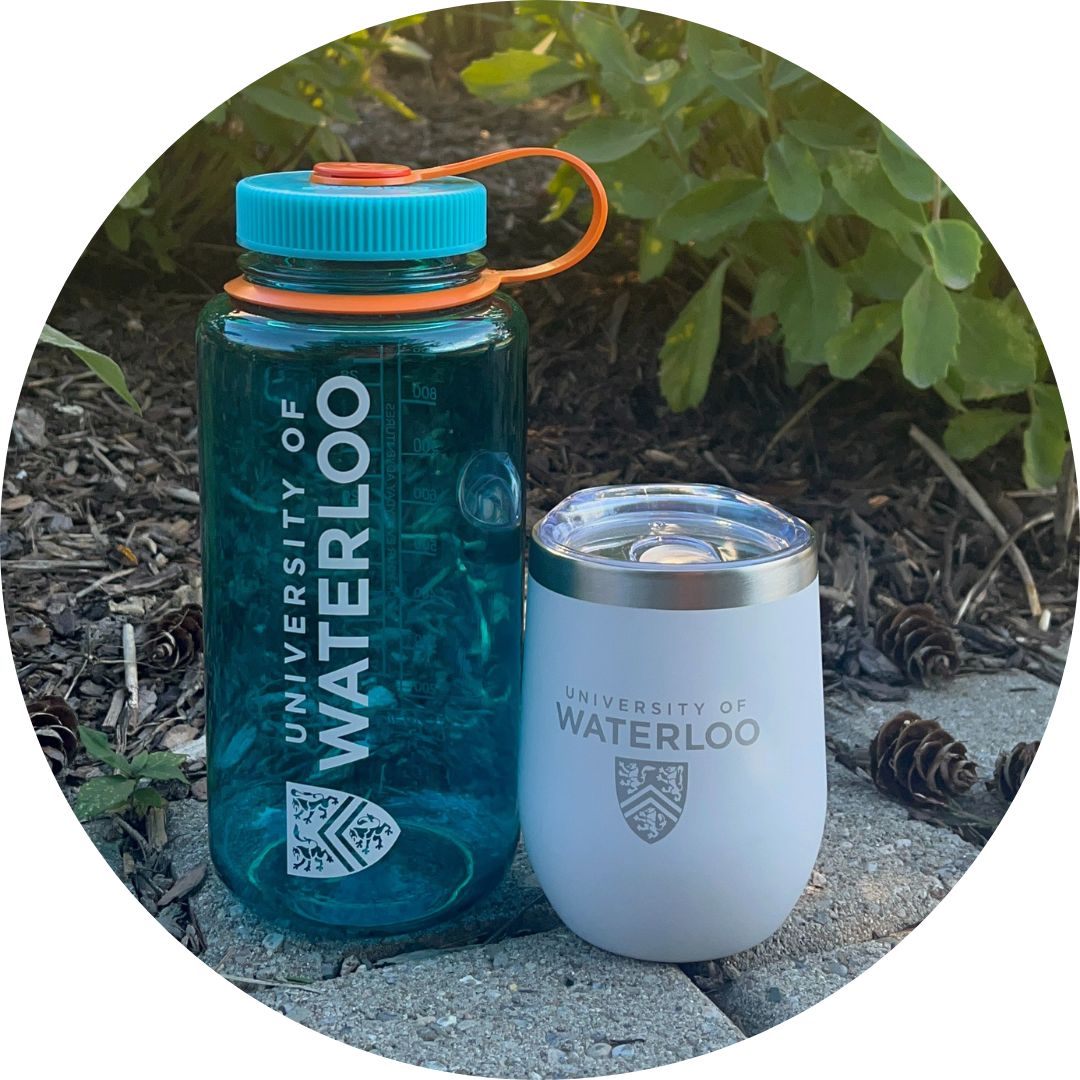
Reducing + eliminating waste
Waterloo is expanding programs and services that reduce waste at the source, including plastics and non-recyclable items, and implementing programs so reusable alternatives are easy to access. Some campus initiatives include:
- Eco-container: Food Services offers a reusable takeout container in residence dining halls. Students can purchase these for $10 for unlimited reuse throughout the year. Plus, Food Services will wash it for you!
- Eco-mug: Save 20 cents on coffee or tea at all Food Services outlets across campus when you bring your own (clean) travel mug. Franchises (Williams, Starbucks, Tim Hortons) offer a 10 cent discount.
- Water bottle refill stations: Waterloo has refill stations across campus to make it easy for students and employees to refill reusable bottles. To date, these have eliminated over 4 million plastic bottles!
- Plastic straws: Food Services has replaced plastic straws with paper straws at their locations across campus, which can be diverted through our organics collection program (Please note plastic straws will still be available upon request for accessibility.)
- Two-sided printing: All centrally managed printers on campus are set to default to double-sided printing to reduce paper waste
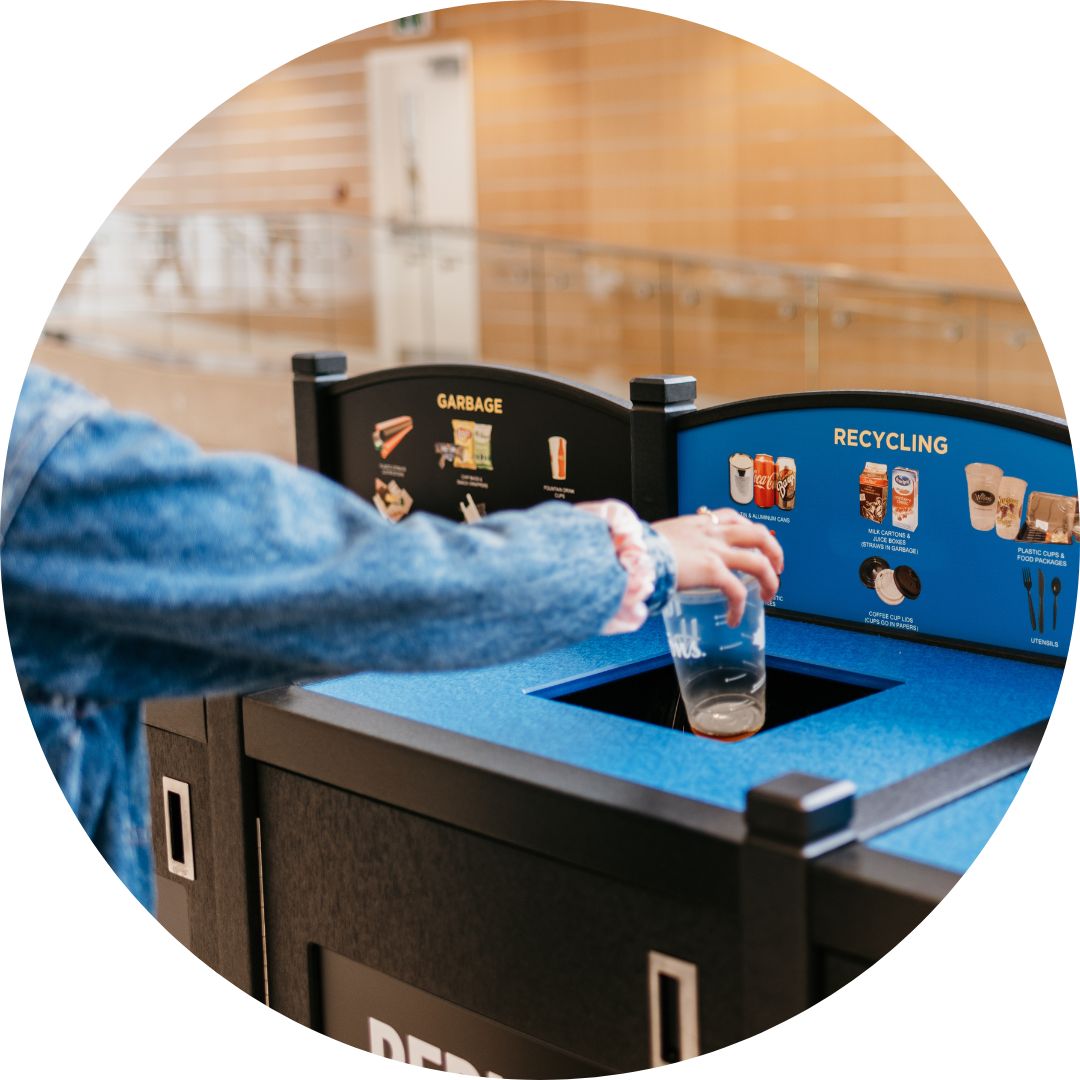
Maximizing recycling
Waterloo is rolling out standardized waste bins to make it simple and convenient to recycle, as well as recycling programs for specialized items (e.g. batteries, e-waste). Some campus initiatives include:
- Shift:Zero Sorting Guide: If you're not sure where an item goes, check out the sorting guide for more information, available online or via Shift:Zero app for IOS and Android devices.
- Standardized four-stream bins: To ensure consistency across campus, the University has developed a new standard for all waste and recycling bins. These will continue to be rolled out through 2024. Departments can also purchase bins directly from Plant Operations to advance the implementation plan.
- Recycling programs: Waterloo has recycling programs for less common items, including batteries, clothing/textiles, e-waste, furniture, hazardous waste, light bulbs, office paper, scrap metal, scrap wood and brush, textbooks, and writing utensils
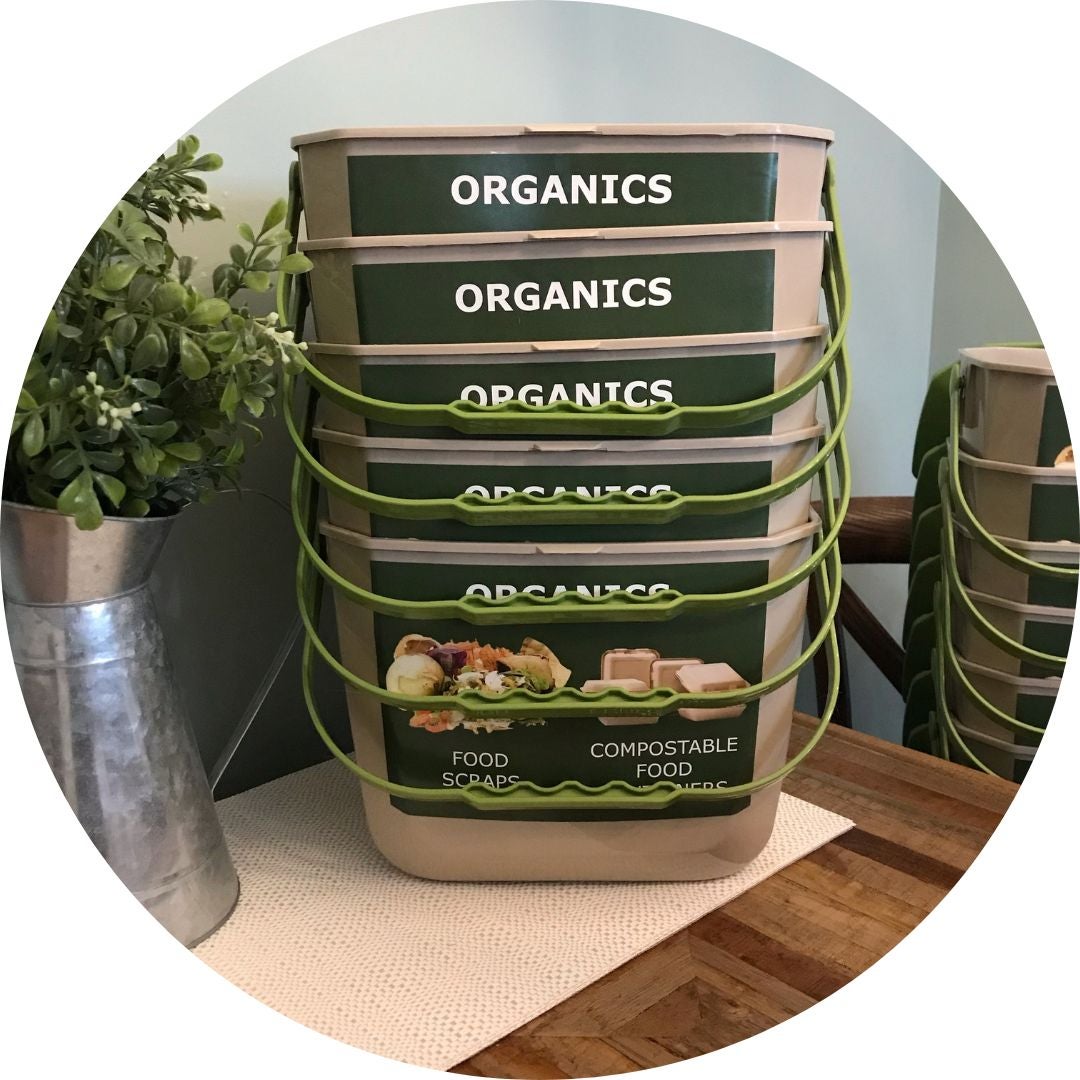
Capturing organics
Waterloo is expanding its organics collection programs for public use, with bins next to all food outlets, as well as in lunch rooms and lounges. Some other campus initiatives include:
- Campus Compost: This student-led initiative launched the first public composting on campus and continues to operate two on-site compost cows. With organics now managed by Plant Operations, Campus Compost focuses on education and advocacy, as well as a small number of collection points across campus.
- UWP organics collection pilot: This volunteer-run program collects compost waste from student suites in University of Waterloo Place during the fall and winter terms. This pilot is completed and the program is under review.

Expanding reuse programs
Waterloo is expanding programs that promote the reuse of goods that are in good working condition or can be put to beneficial use in a new way. Some campus initiatives include:
- Free Store: The Sustainability Office has launched a Free Store to keep usable items out of the landfill (e.g. kitchenware, home goods, office supplies) and redistribute them to those who want and need them.
- WUSA Thrift: Located on the ground floor of the Student Life Centre, the WUSA Thrift Store collects donations clothing from residences and community members and resells it at a discount. The store helps to divert textile waste from the landfill and provides a sustainable and affordable clothing option on campus.
- UW Repair Hub: The UW Repair Hub, run by 4RepairKW, offers free workspace, tools, and support for DIY mechanical/electrical repairs, sewing and mending, knife sharpening, and shoe/backpack repair in E7-1401.
- Surplus inventory: Central Stores maintains a surplus inventory of University furniture, equipment, and supplies and operates a surplus sale for those assets that are still in working condition.
- Campus grounds: Grounds Services reuses leaf and lawn clippings for compost on-site, and reuses damaged trees, broken skids/pallets, and other untreated wood for wood chips on campus gardens.

Supplier engagement
In addition to addressing waste that is generated by the University directly, Waterloo also works with its venders and suppliers to identify opportunities for waste reduction throughout the supply chain. This includes questions on the University's sustainability disclosure checklist on whether suppliers have established corporate waste management commitments or actions, as well as requiring efforts to minimize excessive packaging and prioritize reusable and recyclable packaging options, while still protecting delivery of purchased goods.

Community resources
There are many other waste reduction programs and initiatives in Waterloo Region to keep waste out of landfill and promote a circular economy. Some options include:
- Waste Whiz: Not sure how to recycle something in Waterloo Region? Check out the online sorting guide.
- KW Library of Things: LOT is a space to borrow infrequently used items such as gardening equipment, kitchen appliances, camping gear, or tools instead of buying new.
- Buy Nothing KW: A Facebook group to share items you'd like to give away, lend, trade, or share amongst neighbours in Waterloo Region.